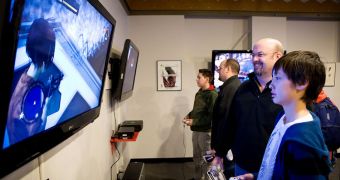Researchers at the Flinders University in Adelaide, South Australia, have recently determined that playing video games before bedtime has only a mild effect on teens' sleeping habits. The team determined that even 50 minutes of playing “Call of Duty 4: Modern Warfare” did not influence the onset of sleep in older male teens once they went to bed. The findings, which should be of use in alleviating parental concerns on their kids' lack of sleep, is detailed in the April 15 issue of the esteemed scientific Journal of Clinical Sleep Medicine.
During the experiments, a group of teens watched a DVD documentary before going to bed, whereas another group played the computer game. The research team discovered that the first group fell asleep about 3 minutes after going to bed, whereas the other took an average of 7.5 minutes to do the same. It was additionally found that about 33 percent of those watching the documentary fell asleep while doing so, whereas none of those actively involved in playing Call of Duty slept whilst in the middle of the game. In contrast to the teens in the documentary group, those who played before bedtime exhibited elevated levels of cognitive alertness, which could partially account for the sleep onset latency.
“Initially we were surprised that playing the violent video game did not lead to a much longer time taken to fall asleep. Although the scientific literature is sparse when it comes to measuring sleep latency associated with playing video games, anecdotally a lot of people report difficulty falling asleep after playing video games at night,” says FU clinical child psychology senior lecturer Michael Gradisar, PhD. He was also the supervisor of the new research effort. The scientist says that the study revealed no differences in sleep architecture and physiological arousal between the two groups.
“We purposefully chose a very tranquil movie [March of the Penguins] to contrast against the very stimulating effect of playing a violent video game in the hope of producing the greatest effect on sleep,” Gradisar says, adding that their study was conducted on the same group of 13 teens. The participants visited the lab twice, once to play the game, and the second time to watch the movie. The sleep-onset latency and sleep architecture were gaged using a variety of medical techniques, including electroencephalography (EEG), electromyography (EMG) and electro-oculography (EOG), the FU team concludes.

 14 DAY TRIAL //
14 DAY TRIAL //